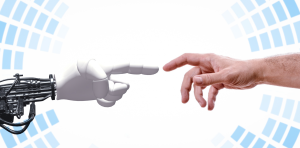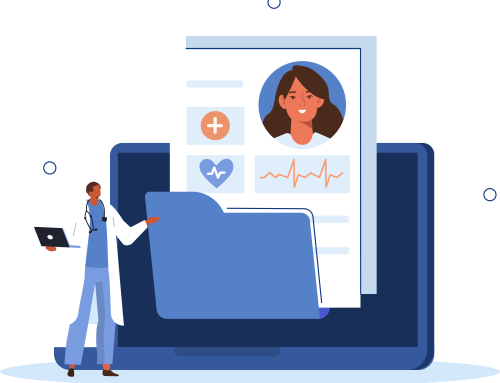Artificial Intelligence (AI) is rapidly transforming the healthcare industry, with the potential to revolutionize patient care and improve clinical outcomes. Over the next three years, we can expect to see AI have a tangible impact on healthcare in several ways.
Firstly, AI will help to streamline and optimize clinical workflows. By automating routine tasks and analyzing large amounts of patient data, AI can help to improve efficiency and reduce errors. For example, AI-powered algorithms can analyze medical images to detect early signs of diseases such as cancer, allowing for earlier diagnosis and treatment. AI can also help healthcare providers to manage patient care more effectively by identifying patients who are at higher risk of complications or readmission, allowing for more proactive interventions.
 Secondly, AI will play a crucial role in personalized medicine. By analyzing genomic and other patient data, artificial intellig
Secondly, AI will play a crucial role in personalized medicine. By analyzing genomic and other patient data, artificial intellig
ence can help to identify patient-specific treatment plans that are tailored to each individual’s unique needs. This will enable healthcare providers to deliver more targeted and effective care, improving clinical outcomes and reducing the cost of care.
Thirdly, AI will help to improve patient engagement and empowerment. By providing patients with personalized health insights and recommendations based on their individual data, AI can help patients to better understand their health and take a more active role in managing their care. This will help to improve patient satisfaction and adherence to treatment plans, leading to better clinical outcomes.
Finally, AI will play a critical role in the ongoing fight against the COVID-19 pandemic. AI-powered technologies such as predictive modeling and natural language processing can help healthcare providers to better understand and manage the spread of the virus. For example, AI-powered chatbots can be used to screen patients for symptoms, reducing the risk of transmission in healthcare settings.
In conclusion, AI is poised to have a significant impact on healthcare over the next three years. From streamlining clinical workflows to enabling personalized medicine and improving patient engagement, AI has the potential to revolutionize patient care and improve clinical outcomes. However, as with any new technology, there are also challenges and risks to be addressed, including ethical concerns around the use of patient data and the need for ongoing education and training for healthcare providers.
Here are some links for further reading on this topic:
“The Impact of Artificial Intelligence – Widespread Job Losses”
“How AI is Transforming Healthcare”
“Artificial Intelligence in Healthcare: Past, Present and Future”
| Editor’s Note: BHM Healthcare Solutions offers independent review and P2P call services with +85% connection/completion rate. Calls are recorded and transcribed, focusing doctors on patient care. CLICK HERE |






